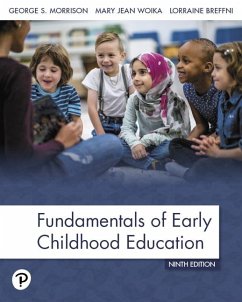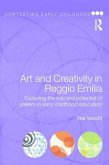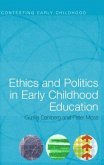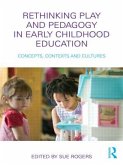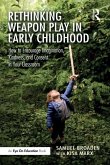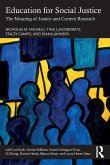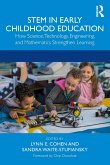- Broschiertes Buch
Andere Kunden interessierten sich auch für
![Foundations and Best Practices in Early Childhood Education Foundations and Best Practices in Early Childhood Education]() Lissanna FollariFoundations and Best Practices in Early Childhood Education132,99 €
Lissanna FollariFoundations and Best Practices in Early Childhood Education132,99 €![Art and Creativity in Reggio Emilia Art and Creativity in Reggio Emilia]() Vea VecchiArt and Creativity in Reggio Emilia56,99 €
Vea VecchiArt and Creativity in Reggio Emilia56,99 €![Ethics and Politics in Early Childhood Education Ethics and Politics in Early Childhood Education]() Gunilla DahlbergEthics and Politics in Early Childhood Education80,99 €
Gunilla DahlbergEthics and Politics in Early Childhood Education80,99 €![Rethinking Play and Pedagogy in Early Childhood Education Rethinking Play and Pedagogy in Early Childhood Education]() Rethinking Play and Pedagogy in Early Childhood Education66,99 €
Rethinking Play and Pedagogy in Early Childhood Education66,99 €![Rethinking Weapon Play in Early Childhood Rethinking Weapon Play in Early Childhood]() Samuel BroadenRethinking Weapon Play in Early Childhood27,99 €
Samuel BroadenRethinking Weapon Play in Early Childhood27,99 €![Education for Social Justice Education for Social Justice]() Nicholas M. MichelliEducation for Social Justice40,99 €
Nicholas M. MichelliEducation for Social Justice40,99 €![STEM in Early Childhood Education STEM in Early Childhood Education]() STEM in Early Childhood Education42,99 €
STEM in Early Childhood Education42,99 €-
-
-
Produktdetails
- Verlag: Pearson Education (US)
- 9 ed
- Seitenzahl: 544
- Erscheinungstermin: 15. Februar 2019
- Englisch
- Abmessung: 217mm x 274mm x 26mm
- Gewicht: 1146g
- ISBN-13: 9780135240519
- ISBN-10: 0135240514
- Artikelnr.: 57174878
Hinweis: Dieser Artikel kann nur an eine deutsche Lieferadresse ausgeliefert werden.
- Herstellerkennzeichnung
- Libri GmbH
- Europaallee 1
- 36244 Bad Hersfeld
- gpsr@libri.de
About our authors George S. Morrison is Professor Emeritus of early childhood education at the University of North Texas where he taught early childhood education and development to undergraduates and mentored masters and doctoral students. He is an experienced teacher and principal in the public schools. Professor Morrison’s accomplishments include a Distinguished Academic Service Award from the Pennsylvania Department of Education, Outstanding Service and Teaching Awards from Florida International University, and the College of Education Faculty Teaching Excellence Award at the University of North Texas. His books include Early Childhood Education Today, 14th Edition; Fundamentals of Early Childhood Education, 9th Edition and Teaching in America, 5th Edition. Professor Morrison has also written books about the education and development of infants, and preschoolers; child development and parent/family/community involvement. Dr. Morrison’s research is on the globalization of early childhood education, the influence of contemporary educational reforms on education and how to best educate early childhood teachers for the classrooms of today. Mary Jean Woika has worked in early childhood education and early childhood special education for over 30 years. She is currently an assistant professor and program manager at Broward College. In addition to teaching, her responsibilities include serving as a mentor to practicum students in their early childhood classrooms throughout Broward County, as well as serving as a mentor at the North Campus Lab School. Ms. Woika has coauthored a textbook and trainee’s manual, All About Child Care and Early Education, which was developed to be used in the training of CDA students. Before coming to Broward College, Ms. Woika was a childcare director, an early interventionist, an early childhood special education teacher, a behavior consultant and inclusion specialist in an outreach program. Lorraine Breffni is the Executive Director of Early Childhood and Parenting Institutes at Nova Southeastern University’s (NSU) Mailman Segal Center for Human Development. She is also Affiliate Faculty NSU’s Fischler College of Education. Dr. Breffni directly supervises three early childhood programs, including an infant and toddler program; a preschool program; and a parent and child education program. She has worked as an instructor/mentor for the Community Outreach initiative at the Mailman Segal Center assisting preschool teachers as they enhance emergent literacy practices in their classrooms and as they develop strategies to accommodate the needs of at-risk children and youth. Dr. Breffni has coauthored the text All About Child Care and Early Education (Pearson) and its companion resource, All About Child Care and Early Education: A Trainee’s Manual. She has written numerous articles for publication and has developed and taught a diverse range of academic subjects at Nova Southeast University, including courses on Developmental Psychopathology, Play Therapy, Best Practice in Emergent Literacy and Best Practice in Prekindergarten Curriculum.
1. You and Early Childhood Education
2. Early Childhood Education Today
3. History and Theories
4. Implementing Early Childhood Programs
5. Teaching with Standards
6. Observing and Assessing Young Children
7. Infants and Toddlers
8. The Preschool Years
9. Kindergarten Today
10. The Early Elementary Grades: One Through Three
11. Educating Children with Diverse Backgrounds and Special Needs
12. Guiding Childrens Behavior
13. Parents, Families, and the Community
Appendix A: Time Line of the History of Early Childhood Education
2. Early Childhood Education Today
3. History and Theories
4. Implementing Early Childhood Programs
5. Teaching with Standards
6. Observing and Assessing Young Children
7. Infants and Toddlers
8. The Preschool Years
9. Kindergarten Today
10. The Early Elementary Grades: One Through Three
11. Educating Children with Diverse Backgrounds and Special Needs
12. Guiding Childrens Behavior
13. Parents, Families, and the Community
Appendix A: Time Line of the History of Early Childhood Education
1. You and Early Childhood Education
2. Early Childhood Education Today
3. History and Theories
4. Implementing Early Childhood Programs
5. Teaching with Standards
6. Observing and Assessing Young Children
7. Infants and Toddlers
8. The Preschool Years
9. Kindergarten Today
10. The Early Elementary Grades: One Through Three
11. Educating Children with Diverse Backgrounds and Special Needs
12. Guiding Childrens Behavior
13. Parents, Families, and the Community
Appendix A: Time Line of the History of Early Childhood Education
2. Early Childhood Education Today
3. History and Theories
4. Implementing Early Childhood Programs
5. Teaching with Standards
6. Observing and Assessing Young Children
7. Infants and Toddlers
8. The Preschool Years
9. Kindergarten Today
10. The Early Elementary Grades: One Through Three
11. Educating Children with Diverse Backgrounds and Special Needs
12. Guiding Childrens Behavior
13. Parents, Families, and the Community
Appendix A: Time Line of the History of Early Childhood Education

